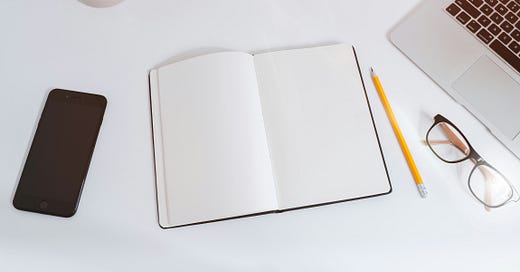How to beat procrastination - Get rid of distractions
The final instalment of our procrastination series!
After reading the first 9 parts of our Beat procrastination series, you should have a pretty solid idea of how to do it.
But what if you still can’t? It’s time to look at your environment.
Does your phone ding and distract you every time you’re getting started? Do you find yourself scrolling social media instead of writing that report? I’ve got you covered with several tips to curb distractions in this final instalment of How to Beat Procrastination.
Set the stage
Gather your work supplies and leave everything else aside. If you need to, go to a different room with your laptop, or go work in the library. (When I work, I shut down my personal laptop so I can only focus on my job)
Turn off all notifications on your phone. You’ve heard this a million times, but every time you look at your phone, social media and distractions loom. I often find myself lost in the rabbit hole of my phone as soon as I check to see what that ding was.
Set your phone and computer on Do Not Disturb. You can also do this in Teams or Slack
Use focusing apps if you struggle with willpower. They will do the hard work for you. Apps such as Cold Turkey, Forest, Freedom and RescueTime will allow you to block different apps while you work and eliminate the need to resort to decision-making
Keep a notepad near you if you have to capture an idea or task or if you need to research something later so you won’t forget. Knowing you wrote it down sets your mind at ease and allows you to refocus quickly.
Get to it
Set a timer for however long you think your task will take. According to Parkinsow’s law, work expands or contracts to the time available. So if you’re on a deadline, block your calendar and set a timer. You’ll be surprised at how accurate this law can be.
Set yourself up for success
Time block your deep work sessions in advance during your weekly review. Look at your task list and decide which projects need your undivided attention and block those on your calendar as soon as you decide.
There’s no need to resort to 100% undistracted work for every single task. Cal Newport distinguishes between shallow and deep work. Shallow work can be stuff like reading emails or anything else that doesn’t require full focus. Know when you need to ditch your phone and when it’s OK to have a peek.
And just like that, we’ve come to the end of our procrastination series!
In the coming weeks, I’ll be compiling all the advice we’ve explored on the topic into a handy guide. Keep your eyes peeled!



